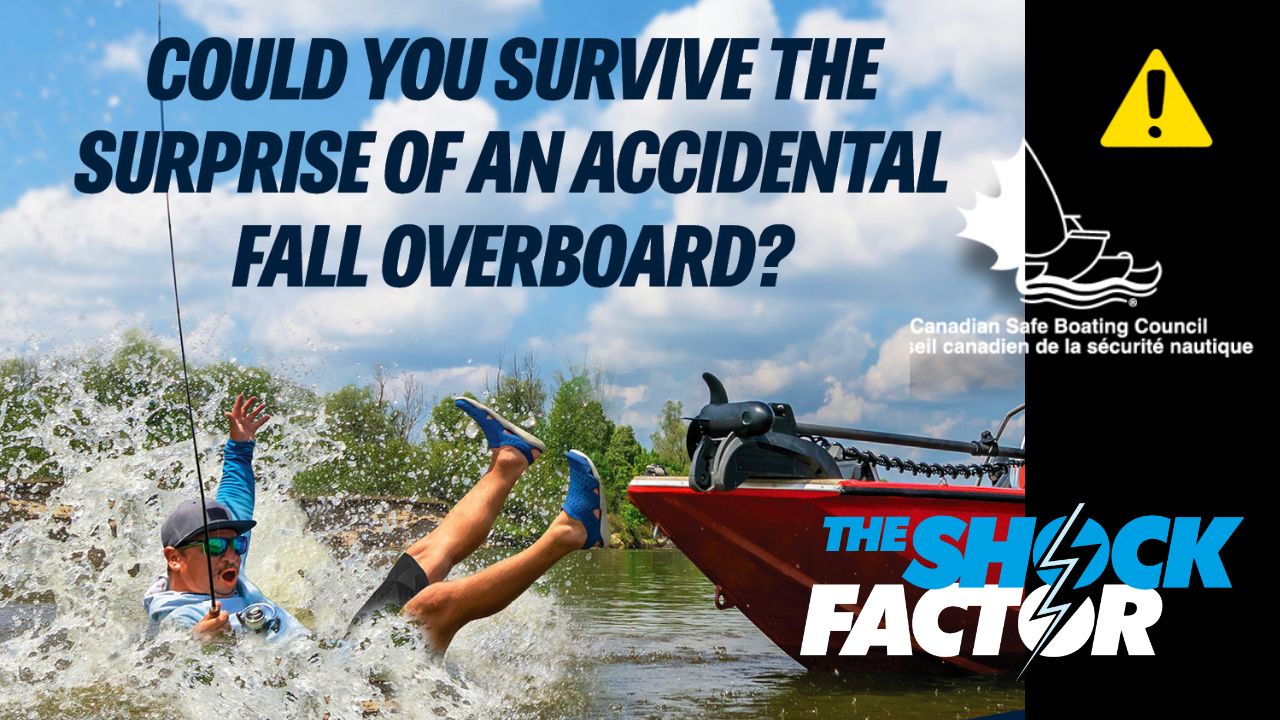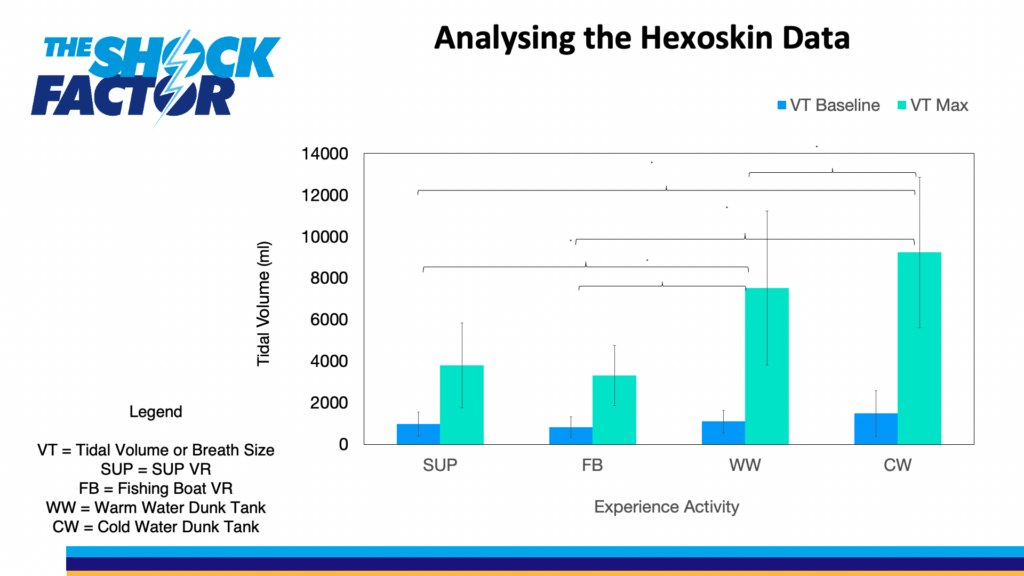Confidence in your swimming skills won’t save you from the dangers of sudden immersion, only a lifejacket can.
That’s the key message from the Canadian Safe Boating Council (CSBC) and their Shock Factor campaign as new research highlights why even strong swimmers are at risk without proper safety equipment.
“Humans have a natural GASP, or increased inhalation size, when surprised. Unexpectedly falling into water, regardless of the temperature, can cause a very large inhalation. If the person’s head is submerged, this could mean inhaling water, which poses a serious risk,” according to the CSBC.
- The danger is immediate. The physiological response occurs within seconds of falling into the water.
- The risk is universal. Warm or cold water, experienced or novice boater—the gasp reflex does not discriminate.
The CSBC advises all boaters, fishing enthusiasts, and watersports enthusiasts to use a lifejacket and put an end to the common misconception that strong swimmers are invulnerable to drowning
Through rigorous testing and real-life simulations, the CSBC discovered that the body’s involuntary gasp reflex is a key factor in many life-threatening drowning incidents.
This is a sudden, involuntary reaction from the human body that can cause water inhalation and lead to drowning in mere seconds.
The graph shows the difference between regular breath size(Blue), versus being exposed to the water right below them(Teal).
Take a look at some of the study’s contestants on the official Shock Factor website, ranging from police officials to powerboaters and more.
Stay safe, stay smart, and always wear your lifejacket.
For more information on the Shock Factor and to view detailed research and safety tips, visit the official CSBC website and check out the resource videos for best practices.
Let’s keep our waters safe for everyone.
Keyword : boating accident prevention, boating safety Canada, boating safety research, boating safety tips, canadian safe boating council, cold water shock, Cold Water Survival, CSBC lifejacket campaign, CSBC Shock Factor, drowning prevention Canada, drowning risks strong swimmers, gasp reflex drowning, involuntary gasp reflex, lifejacket awareness, lifejacket importance, shock factor boating, Shock Factor campaign, sudden immersion dangers, water safety education, why swimmers drown boating accident prevention, boating safety Canada, boating safety research, boating safety tips, canadian safe boating council, cold water shock, Cold Water Survival, CSBC lifejacket campaign, CSBC Shock Factor, drowning prevention Canada, drowning risks strong swimmers, gasp reflex drowning, involuntary gasp reflex, lifejacket awareness, lifejacket importance, shock factor boating, Shock Factor campaign, sudden immersion dangers, water safety education, why swimmers drown



